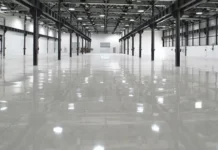One of the easiest ways to boost the performance of a computer is to add more memory to it. This simple task doesn’t cost a lot, and can help your slow PC perform better. Adding more memory is probably the most common reason why a PC slows down, and is an inexpensive solution for most users. A computer that costs $300 might be fine for your everyday needs, but it probably won’t be cut out for video editing.
CPU bottlenecking
CPU bottlenecking is a real problem that is affecting the speed of your PC. It occurs when the CPU is overloaded and is not able to complete tasks at the required speed. This slows down other parts of the PC as they wait for processing power. It can also happen when your CPU isn’t properly cooled. When a CPU is overheated, it automatically slows down in order to conserve heat, but that decreases the speed of running tasks.
If you suspect that your PC is experiencing CPU bottlenecking, take a look at the performance of your GPU and CPU. You can use a bottleneck calculator to find out which components are slowing down your PC. It will tell you which components are the real bottleneck and suggest upgrades to improve your system. You can also use monitoring software like MSI Afterburner to monitor your PC performance and check the workload done by different components.
Missing or faulty drivers
If you’re frustrated with a slow PC, you’re not alone. A slow PC is often the result of missing or faulty drivers. These components are responsible for your PC’s ability to communicate with its devices. If you don’t have the latest drivers, you can manually update them from the manufacturer’s website. Some drivers are only available for certain hardware components, so you’ll need to search for the manufacturer’s name to find the latest version.
Another common cause of slow PC performance is outdated graphics or audio drivers. You may need to update them to play new games. It’s worth checking the minimum system requirements for new games before updating them.
Viruses
It’s frustrating to discover that your computer is running slow. There are many causes of slow computers, including viruses. Viruses are often downloaded when you download new programs or click on links in emails. They can also take up a lot of storage space, which can slow down your PC. If you want to speed up your PC, download a virus removal program.
If you’re worried that your computer is slow, check the performance of your operating system and programs. Many viruses and malware slow down a computer’s performance and cause it to freeze or crash. Viruses can replicate and spread, and if they are left unchecked, they can cause serious problems. A good antivirus program can prevent viruses and protect your computer from them, but it isn’t a cure.
Memory usage
One of the most common symptoms of a slow PC is a high memory usage. If your PC has more RAM than it can use, you may experience an error message when the operating system tries to start. You can check your memory usage by running various programs, including Activity Monitor or Task Manager. The more programs your PC is running, the more memory it uses. You can also run vmstat to see how much RAM your PC is using. If your computer is using a lot of memory, you may want to upgrade the RAM.
Another cause of a slow PC is low memory. If your computer has less than 4GB of RAM, it will have difficulty handling moderate workloads. For modern gaming, you should aim for 8GB of RAM or more. Alternatively, your computer may be unable to handle high-end graphics settings due to the lack of RAM. Dual-core CPUs without Hyper-Threading are also prone to slowing down your PC. AMD CPUs from the Phenom II product family or older are also less likely to give you a great performance.
Application problems
Unless your computer is running on a low-end model, application problems are likely the real cause of your PC’s slow performance. This can include a variety of issues ranging from malware infection to decluttered storage or stopped temporary files. Other causes include bottlenecked CPUs, a corrupt hard drive, and a loaded browser cache.
If you suspect that your computer is running slowly, you should run the Performance Manager program on your computer to determine which programs are causing problems. It can also suggest fixes for any problems it finds. Other quick ways to speed up your PC include cleaning up extra files or disabling startup applications. Alternatively, you can run the Windows Troubleshooter program to remove any malware that may be affecting your computer’s performance.
















